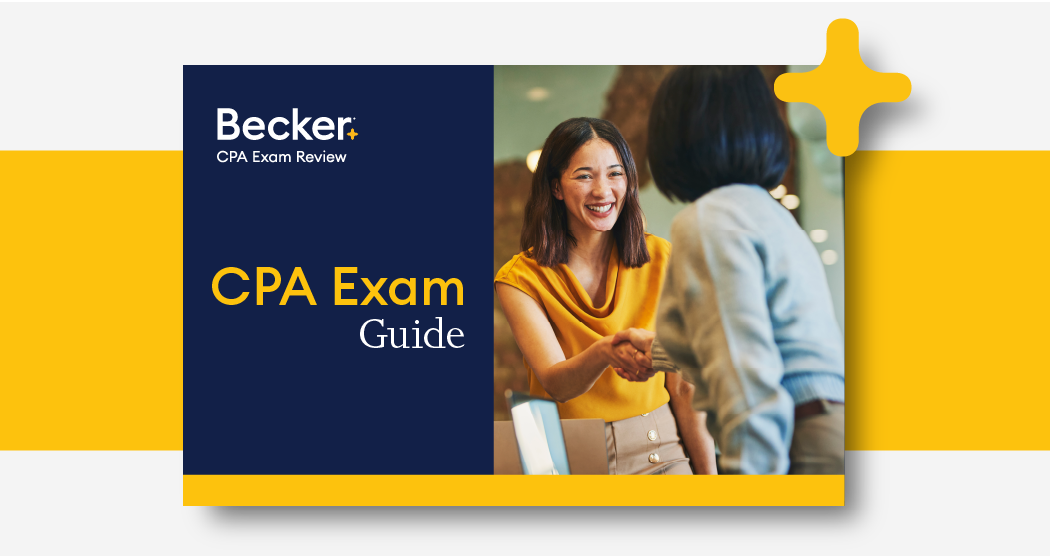
Earning a CPA license opens the door to career advancement, opportunities for specialization, and personal achievement. However, everyone’s path to becoming a CPA is unique.
Often, the difficulty of the CPA Exam, plus the experience and education requirements turns away prospective candidates. For others, unforeseen life circumstances cause some accounting professionals to hold off on becoming CPAs until later in their careers. Others simply don’t realize that they want or need a CPA license until years into their careers.
If you’re advanced in your career but considering a CPA license, Becker has good news! It’s never too late to become a CPA. In fact, you may find the process more manageable at this stage in life. And, most importantly, you’ll still get to enjoy the many benefits of becoming a licensed CPA.
Can I still fulfill the CPA requirements?
It’s important to understand the CPA requirements to know if it is still viable at this point in your career.
While exact CPA licensure requirements vary by state, stipulations generally cover three areas: exam, education, and experience.
- Exam requirements: All candidates must pass the CPA Exam, which consists of four separate exam sections. You must pass three Core Exams that all candidates must pass, plus you must choose from one of three Discipline Exams to show skill in specialized knowledge. Make sure you check your state's CPA Exam requirements prior to applying.
- Education requirements: All states require a bachelor’s degree, usually with a concentration in accounting or finance from an accredited college or university and 150 total college credit hours.
- Experience requirements: Most states require at least one year of relevant work experience in accounting-related practices.2
Meeting the CPA requirements as a practicing accountant
As an accounting professional, what does it look like to complete these requirements? Is it feasible for your career path?
- Exam as a professional: While it does require time and effort to prepare for the CPA Exam, it’s certainly not unattainable. In fact, many experienced accountants have practical experience in topics covered on the exam, plus have the soft skills related to time management and concentration, to better plan and prioritize their study sessions.
- Education as a professional: If you are already working as an accountant, you likely have already completed the basic education requirements to sit for the CPA Exam—and maybe even the additional credits needed for licensure.
- Experience as a professional: If you have been progressing your career in the accounting industry, you’ve probably already fulfilled the experience requirement. Unlike recent graduates, you don’t have to work for years to gain the experience needed to become a CPA.
As an experienced accountant, you likely have already met the requirements for CPA licensure except the CPA Exam. |
Benefits of taking the CPA Exam later in your career
While the average CPA Exam candidate is just 29 years old,3 there are no age limitations on who can become a CPA. In fact, if you’re mature in your career, there are many benefits of earning your CPA license later in your career.
Progress towards the CPA requirements
As we mentioned above, professional accountants likely already have the education and experience needed to meet the CPA requirements and have the advantage of focusing solely on passing the CPA Exam.
Great discipline
You've already built a successful career, and this has required that you learn to be highly disciplined and focused—two critical skills for passing the CPA Exam.
High motivation
If you’ve been working in accounting for some years, you’ve likely seen all the opportunities that becoming a CPA will open for you. Deciding to pursue your CPA license comes from understanding its value, which will help you stay motivated even when it’s difficult.
More income
Recent college graduates are often struggling with student loan payments and entry-level salaries, so affording the CPA Exam costs can be challenging. Established professionals likely have more flexibility in their funds, so paying the application and entrance fees and investing in the best CPA Exam prep course is less of a strain.
More time to devote to studying
While you still have a demanding career, by the time you're established, you have navigated a better work-life balance so you can make time for studying and preparing to take the exam. Also, many younger candidates also have small children, which can make it difficult to schedule studying. When your kids are older, you may find it easier to have time to study.
Why become a CPA later in your career?
While you're already established in your career as an accountant, not having your designation does limit your opportunities. As a licensed CPA, you’ll enjoy a huge range of career advancement opportunities and general perks, including:
- Higher salary
- Greater prestige
- More job opportunities
- More responsibility
- Can representant clients before the IRS
- Can perform external and SOC audits
- Can prepare and certify SEC reports
- Opportunities to grow in a specialization
- Use CPE to specialize in an area of interest
Pass the CPA Exam with Becker
So, to answer your question: Should I still get my CPA license? The answer is a resounding “absolutely.”
And Becker is here to support your journey and help you pass the CPA Exam, with 60+ years of experience helping professionals of all ages become Exam Day ReadySM.










